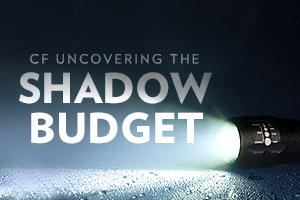Media

Government that Works?in the Shadows
Legislation introduced by Rep. Seth Grove—House Bill 1843—injects a much-needed dose of transparency into the state budget. The proposal would give taxpayers access to critical budget documents and financial information.
The bill requires state agencies to place original, unedited budget documents used to craft the governor’s budget proposal online for review. It also requires Treasury to improve its Transparency Portal, which houses the commonwealth’s financial information, including the status of shadow budget reserves. Finally, the bill codifies some of Treasury’s current practices and makes more budget information readily available.
For example, HB 1843 creates Commonwealth Financial Watch and Commonwealth Checkbook. The former includes the top twenty cost drivers within the General Fund, along with the top ten agencies with the highest amount of General Fund expenditures in each fiscal year. The latter provides access to an online ledger, which is currently available to select legislators and staff, giving taxpayers an inside look at how their money is being spent.
Unfortunately, Gov. Wolf is opposed to some of these reforms, which calls into question his commitment to transparency. An administration-backed amendment would eliminate access to the online ledger and agency documents used to craft the governor’s annual budget proposal.
This isn’t the first time the administration has shunned transparency. The state recently went to court to keep hidden the corporate welfare package it’s offering to Amazon. Gov. Wolf also ignored calls to make the administration’s negotiations with government unions—who are some of his largest campaign contributors—open to the public.
The governor needs to be consistent in his calls for transparency. He can’t make special exceptions for multi-billion corporations or his campaign contributors. To avoid corruption or even its appearance, state government should operate with maximum transparency.